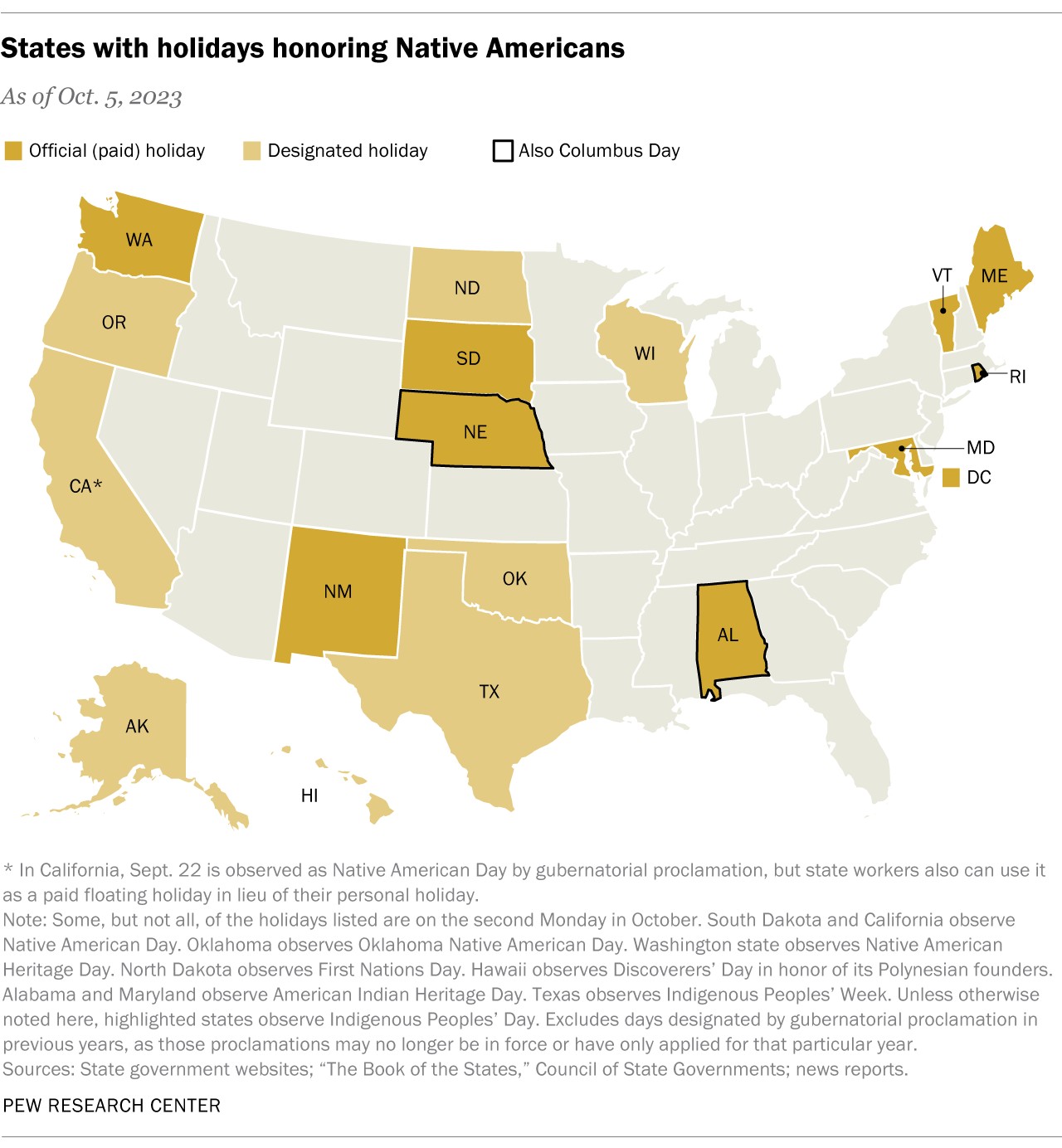Columbus Day, once a widely recognized federal holiday in the United States, has faced increasing scrutiny and is no longer universally celebrated. While it remains officially designated on the second Monday of October, a significant shift is underway, with many states and cities replacing it with Indigenous Peoples’ Day or a similar observance. This change reflects a growing re-evaluation of Christopher Columbus’s legacy and a broader awareness of the history and contributions of Native Americans.
The Historical Significance of Columbus Day and its Origins
Established as a federal holiday in 1937, Columbus Day’s initial purpose was to celebrate Italian-American heritage and commemorate Christopher Columbus’s arrival in the Americas in 1492. This commemoration gained prominence largely through the efforts of groups like the Knights of Columbus, aiming to recognize the contributions of Italian immigrants and celebrate a figure seen as embodying American ideals of exploration and discovery. In 1971, the holiday was moved to the second Monday in October, creating a convenient three-day weekend as part of the Uniform Monday Holiday Act. For decades, Columbus Day was a fixture of the American holiday calendar, marked by parades and school closures in many parts of the country.
The Controversy: Re-evaluating Columbus’s Legacy
However, in recent decades, Columbus Day has become increasingly contentious. This shift is largely due to a deeper understanding and acknowledgment of the devastating impact Columbus’s voyages had on Indigenous populations in the Americas. Critics argue that celebrating Columbus ignores or downplays the brutal realities of colonization, including the enslavement, disease, and violence inflicted upon Native peoples in the wake of European arrival.
Historians and activists have brought to light the documented atrocities committed during Columbus’s voyages and subsequent colonization efforts. Accounts detail the exploitation and mistreatment of Indigenous populations, the introduction of diseases that decimated native communities, and the role Columbus played in initiating the transatlantic slave trade. This revised historical perspective challenges the traditional heroic narrative surrounding Columbus, portraying him instead as a figure associated with colonialism and oppression rather than discovery and progress.
The Rise of Indigenous Peoples’ Day
In response to these concerns, Indigenous rights advocates and their allies have pushed for the recognition of Indigenous Peoples’ Day. This alternative holiday aims to honor the history, culture, and contributions of Native Americans, while simultaneously acknowledging the injustices they have faced. The movement to replace Columbus Day with Indigenous Peoples’ Day gained momentum in the late 20th century and has steadily grown in the 21st.
South Dakota was the first state to officially replace Columbus Day with Native American Day in 1990. Since then, numerous cities and states have followed suit, either officially renaming the holiday or establishing Indigenous Peoples’ Day alongside or instead of Columbus Day. This trend reflects a growing societal recognition of the need to center Indigenous perspectives and histories, and to move away from celebrating figures whose legacies are deeply intertwined with colonialism and the suffering of native peoples.
State and Local Level Changes: A Patchwork of Observances
The shift away from Columbus Day is evident in the varied approaches taken by different states and localities. As of recent data, only a minority of states still observe Columbus Day as an exclusive state holiday. Many have officially proclaimed the second Monday in October as Indigenous Peoples’ Day, while others observe both holidays concurrently. Some states have chosen to replace Columbus Day with alternative holidays altogether, reflecting a broader desire to move beyond the figure of Columbus.
For example, states like Maine, Vermont, and New Mexico have officially renamed Columbus Day to Indigenous Peoples’ Day. Other states, like Nebraska and Rhode Island, recognize both Indigenous Peoples’ Day and Columbus Day on the same day. In a symbolic move, even Columbus, Ohio, the city named after Christopher Columbus, has officially recognized Indigenous Peoples’ Day. Conversely, some states continue to observe Columbus Day without significant alteration, highlighting the ongoing debate and differing perspectives across the nation.
Even within states that still officially recognize Columbus Day, the level of actual observance may be waning. Many businesses and institutions are increasingly choosing to recognize Indigenous Peoples’ Day or simply treat the second Monday in October as a regular workday. This reflects a cultural shift where public sentiment is increasingly questioning the appropriateness of celebrating Columbus.
Continued Observance and Regional Variations
Despite the growing movement towards Indigenous Peoples’ Day, Columbus Day is not entirely disappearing. It remains a federal holiday, and some states, particularly in the Northeast, continue to observe it more traditionally, often reflecting a historical connection to Italian-American communities who played a significant role in promoting the holiday initially. The level of observance also varies regionally, with some areas maintaining parades and events associated with Columbus Day, while others focus primarily on Indigenous Peoples’ Day or no longer mark the day with any specific holiday observance.
 Map of the United States showing states observing Columbus Day and states observing holidays honoring Native Americans, reflecting the changing recognition of historical figures.
Map of the United States showing states observing Columbus Day and states observing holidays honoring Native Americans, reflecting the changing recognition of historical figures.
Conclusion: A Holiday in Transition
In conclusion, Columbus Day is no longer celebrated as universally as it once was due to a significant re-evaluation of Christopher Columbus’s historical role and legacy. The increasing recognition of Indigenous Peoples’ Day signifies a cultural shift towards acknowledging the history and contributions of Native Americans and confronting the darker aspects of colonial history. While Columbus Day remains a federal holiday, its observance is declining and evolving, reflecting a broader societal conversation about whose stories and histories are celebrated and honored in the American public sphere. This transition underscores the dynamic nature of holidays and how they can change over time to reflect evolving societal values and understandings of history.